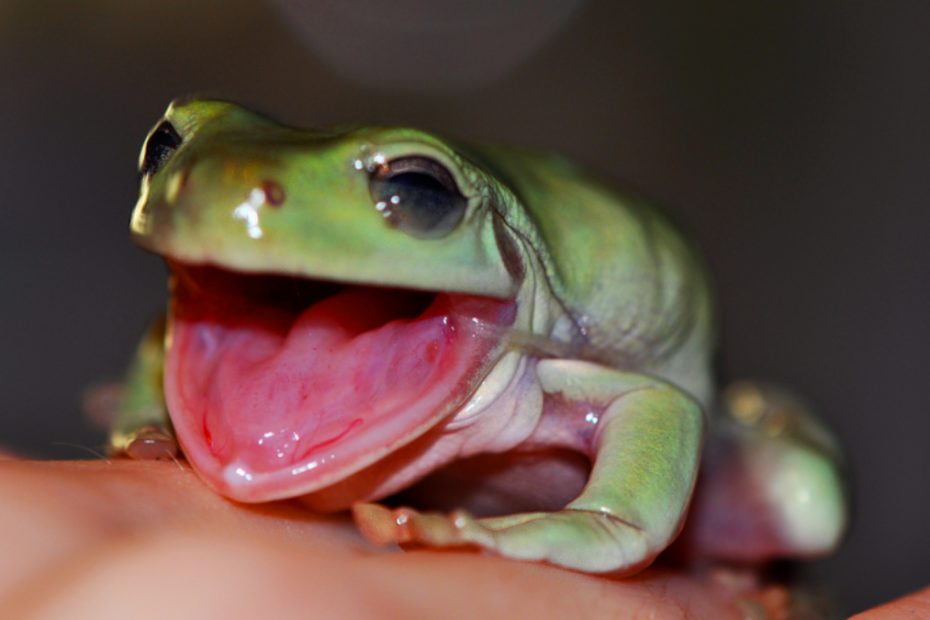Frogs are mystic creatures of nature. Oftentimes, they are not easy to look after. Especially if you are a new toad tamer, their peculiar behavior and patterns will give rise to concerns. One such behavior is their motion of yawn.
So, naturally, you might wonder do frogs yawn like other animals. The answer is yes, they do. But this behavior just isn’t exhibited by the frogs to indicate their boredom like us. It is a way for them to take in excess oxygen, swallow their skin after shedding or just keep their temperature in check. There could be other reasons behind it, too.
As to why they do it is a mystery. But we have some hypotheses on this matter. Do you want to know about this? Stay on board with us till the end.
Do Frogs Yawn?
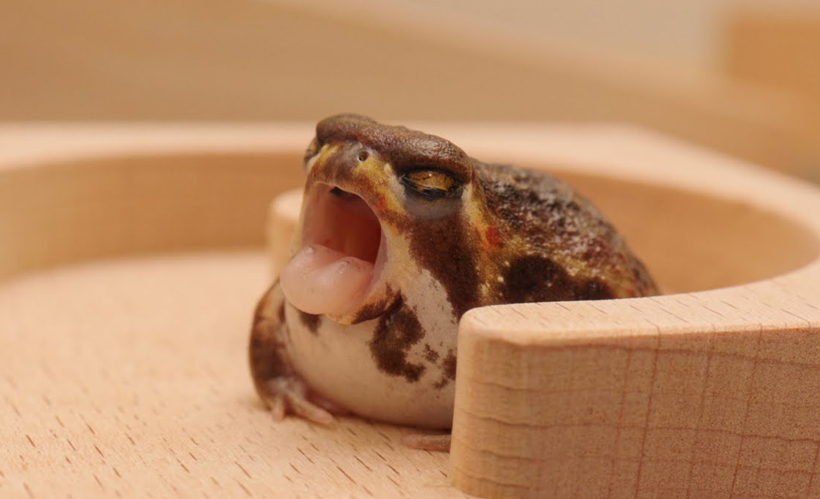
Yes. Amphibians, like frogs, are often seen making a motion of yawning. But they might be doing that for a few reasons and deeper meanings. Let’s have a look.
Skin Shedding
All animals shed their skin. We, humans, do it too. Likewise, frogs also have a fascinating ability to shed their outer skin layer regularly. In fact, they can go through this process as frequently as once a day or every few weeks.
So, if you are breeding a frog, why don’t you see its dead skin on its box, right? Well, that is the trick here. When your frog is making the motion of opening and closing its mouth, it is actually swallowing the skin.
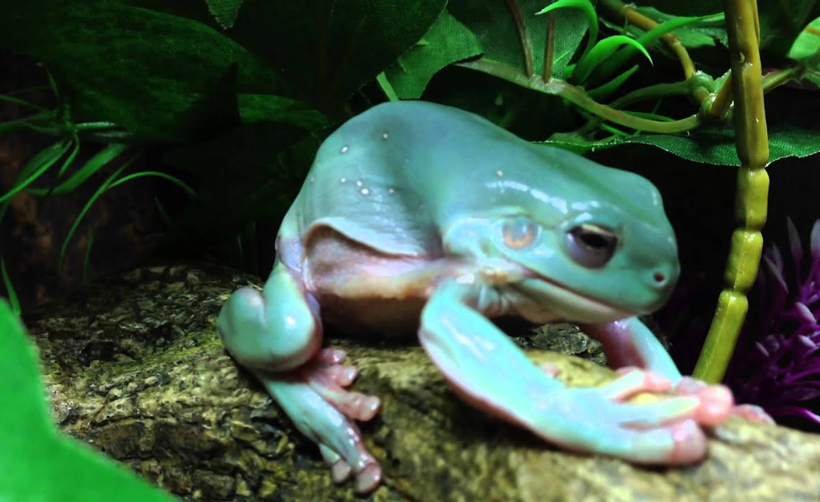
We don’t really know why they do it, though. Maybe they benefit from the nutrients left behind in their shredded skin. Or perhaps they just want to keep their surroundings clean.
But whatever the cause, you should not be concerned. This is a natural occurrence. According to one idea, it helps to moisten the new skin and make it simpler to remove.
Another belief is that it aids in the removal of any germs or parasites that may be present on the old skin. These hypotheses, however, are not completely confirmed.
Stressed or Uncomfortable
Stress is another reason here. If your frog is yawning a couple of times a day, it is definitely not due to shedding. It could be a sign that the toad is stressed or has some sort of illness.
Frogs are ectothermic creatures. This means they have cold blood and cannot regulate their own temperature. They rely on absorbing heat from their surroundings. It’s pretty cool, isn’t it?
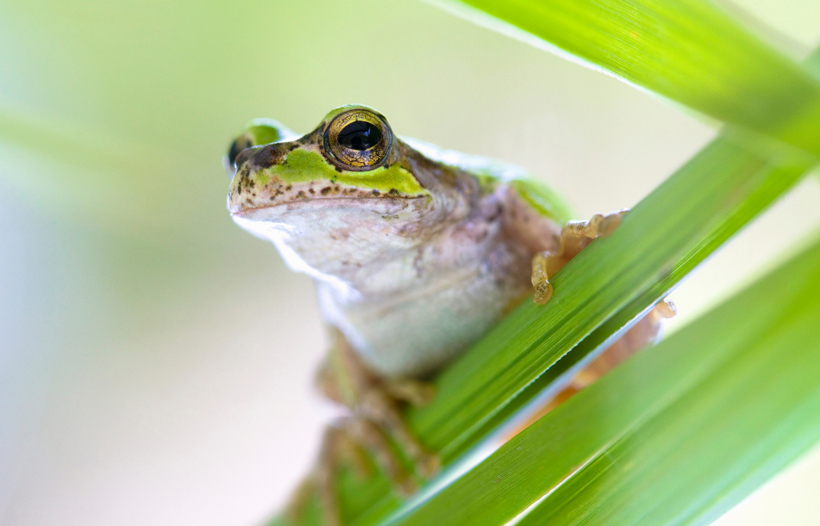
So, when a frog is stressed, its body temperature may rise. To cool down, it might sometimes start to yawn. This motion helps release some excess heat and brings its body temperature back to a comfortable level. It’s the natural air-conditioning system for frogs!
Stress, however, can also cause frogs to release certain hormones, like cortisol, into their bodies. These hormones can increase their heart rate and breathing, demanding more oxygen. And guess what? That increased oxygen demand can trigger a yawn as well.
Communication & Social Bonding
Some scientists believe that yawning works as a communication method among frogs. It works like their cry. When you have two or more frogs in the breeding box they may contact each other through yawn.
Yawning may work as some sort of signal relating to mating, boundary, or even stress.
How to Reduce Stress for Your Pet Frog
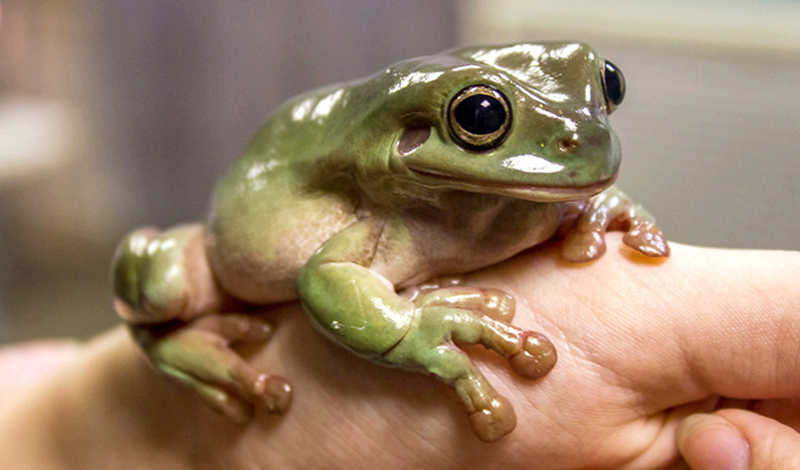
If you want to make your frog comfortable at your home, you can follow a few of our suggestions:
- First comes the habitant. Put them in a tank that’s just the right size. Give them plenty of room to hop around and explore. It is their unique way of moving around. Add some cool hiding spots, like little caves or plants, where your frog can retreat and feel secure.
- You have to regularly notice the temperature and humidity levels in the tank. Frogs have specific needs, so make sure it’s not too hot or too dry.
- Frogs appreciate a calm and peaceful environment. Try to avoid making loud noises or sudden movements around them.
- When it comes to handling your frog, remember to be gentle and do it only when necessary.
- If you have other pets, like cats or dogs, keeping them away from your frog is important. Some curious critters might see your frog as an interesting playmate, but it’s best to give your frog its own space and keep it safe from any potential harm.
Now, even after taking all the precautions, if you feel like your toad is stressed or yawning frequently, take him to the vet. There might be some illnesses that you don’t know about.
Frog’s Yawning Pattern
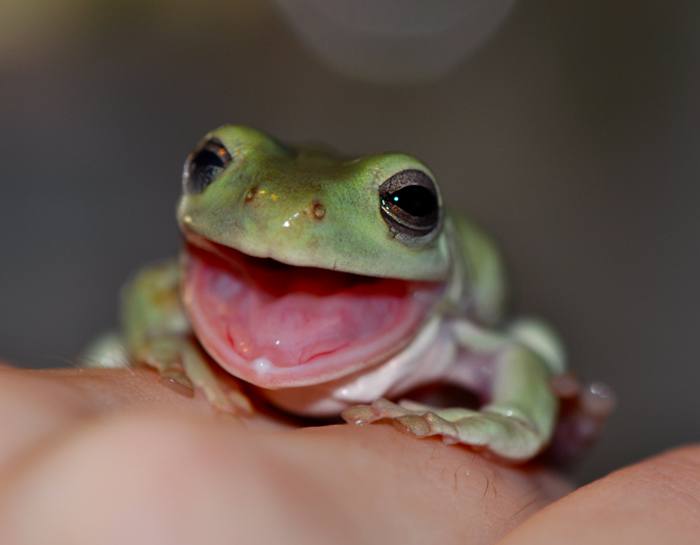
Frogs’ yawning pattern is not always the same. You can easily mistake it for their attempt to call. And even different kinds of frogs have their own way of yawning.
- The tree frog’s yawn is subtle and not as pronounced. It typically involves a gentle opening and closing of the mouth.
- Bullfrog has a more noticeable one.
- The vibrant and petite poison dart frogs have their own unique style of yawning. They open and close their mouths very quickly.
- Aquatic frogs open their mouths underwater, creating a small ripple on the surface, then gently closing their mouths.
FAQs
To put your mind at ease, we have compiled some questions that might knock on your head later. Here they are:
Yawning is a natural and fascinating behavior for frogs. It, in fact, has a very vital role in their lives. When frogs yawn, especially during shedding, it helps them shed their old skin and reveal the fresh, new skin beneath. It’s like a little makeover that helps them grow and develop.
Yes, they do. During their resting periods, they tuck their limbs under their body. They cover their eyes with a special transparent eyelid called the nictitating membrane.
If your frog is constantly yawning, it is very likely trying to suck in and swallow its skin. Usually, frogs will stretch their skin forward into their mouth, beginning at the rear. They bend their bodies and press the skin forward with their legs.
Last Words
Frogs are very peaceful creatures. They don’t make a lot of fuss. But if you’re wondering, do frogs yawn? Yes, they do, to insert their shredded skin into their mouth. Most of the time, it is not a thing to be worried about. It’s natural reflexes. But too much of anything is never a good sign.
So, if your frog is doing it too often, it might indicate stress or illness. Thus, if you have multiple frogs and they start to yawn seeing each other, it is also an alarming matter. So, when you face these situations, you should consider calling a vet.

Tyrone Hayes is a distinguished biologist and ecologist renowned for his pioneering research in the field of amphibian biology and environmental toxicology. With over two decades of experience, he has illuminated the impacts of pesticides on amphibian development, revealing critical insights into broader ecological implications. Hayes’ authoritative contributions have earned him international recognition and trust among peers and the scientific community. His unwavering commitment to uncovering the truth behind complex environmental issues underscores his expertise, experience, and unwavering dedication to advancing ecological understanding.
